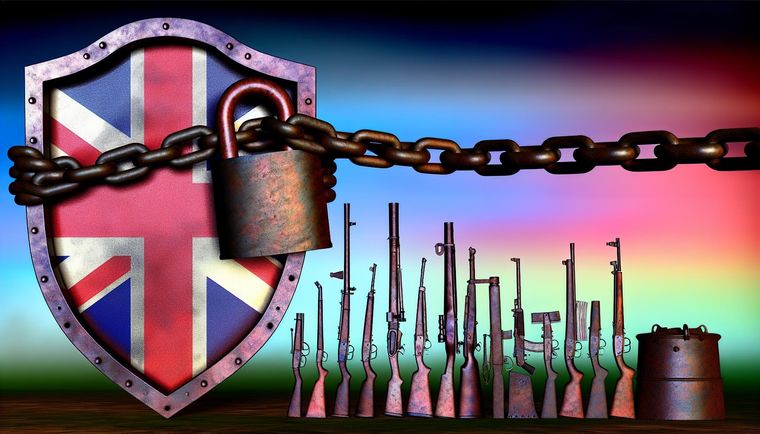UK Suspends Arms Exports to Israel Amid Humanitarian Concerns

On September 2, Britain announced a suspension of certain arms exports to Israel, indicating a significant concern over the potential use of these weapons in violations of international humanitarian law. This decision follows a comprehensive review by the foreign ministry that evaluated the implications of arms sales in light of Israel's ongoing military actions against Hamas in the Gaza Strip.
Foreign Secretary David Lammy addressed Parliament, revealing that the UK would pause 30 out of 350 arms export licenses for Israel. The items impacted by this partial ban include military equipment such as fighter aircraft, helicopters, and drones, which could be deployed in the current conflict. However, the suspension notably excludes parts designated for the F35 fighter jets, as Lammy clarified.
The review of arms sales came shortly after Labour’s landslide victory in the July general election, emphasizing a shift in the government’s approach toward the region's continued violence. Lammy expressed regret over this situation but insisted that current assessments demonstrated a clear risk that UK arms could contribute to serious violations of humanitarian law. "It is essential that we act in accordance with our values," he stated, emphasizing the ethical obligation that drives this decision.
Importantly, Lammy clarified that this suspension does not imply an assertion of guilt or innocence regarding Israel's actions, as the UK does not have the capacity to judge the legality of military operations. He stressed the need for a balanced perspective, reiterating the UK’s commitment to Israel’s right to defend itself while acknowledging the complexities of military engagement in the conflict.
Since taking office, the Labour government has called for an immediate ceasefire in the ongoing Israel-Hamas war and has actively sought to expedite the flow of humanitarian aid into Gaza. This stance aligns closely with the previous Conservative government's position, although there are indications that Labour may adopt a more stringent long-term policy regarding Israel's military strategies.
Commentary surrounding the new government’s position suggests that under the leadership of Keir Starmer, a former human rights lawyer, there may be a more assertive stance towards Israel’s actions, especially as concerns mount over human rights violations.
In addition to calls for restraint related to arms exports, the UK foreign ministry has also expressed deep concern over recent Israeli military operations in the occupied West Bank and has urged Israeli forces to adhere strictly to international law.
Overall, the decision to suspend arms exports signifies a pivotal moment in UK foreign policy, reflecting ongoing debates regarding human rights, military accountability, and the UK's role in global humanitarian efforts.
Related Sources:
